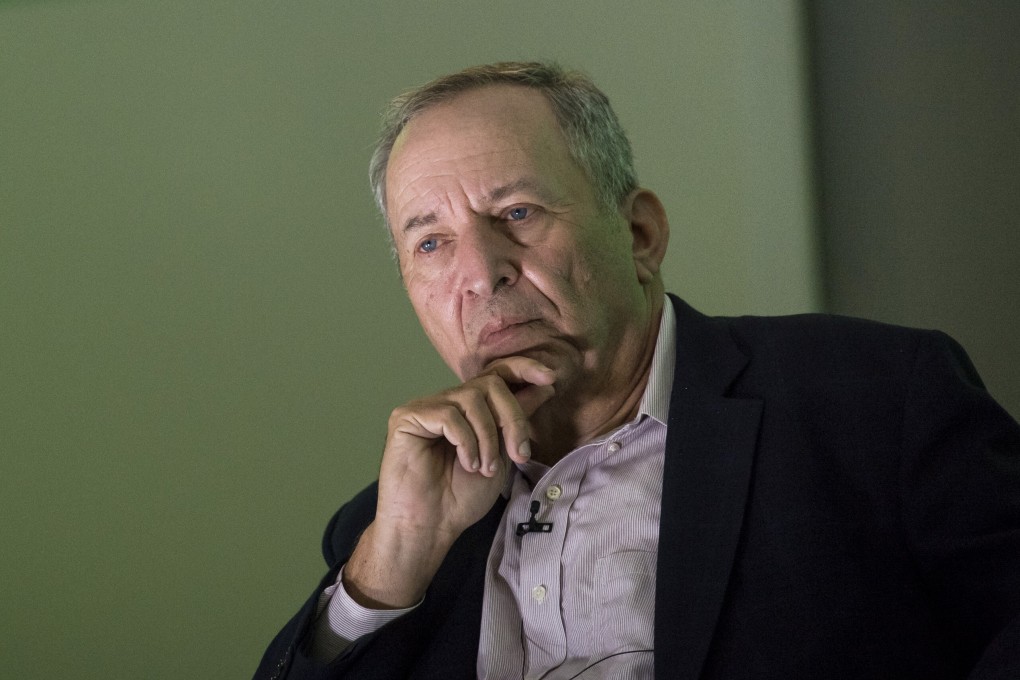China, US share inflation risks that will not go away soon, their former top finance officials agree
- China’s outspoken former finance minister, Lou Jiwei, wants to see Beijing and Washington work together on infrastructure, but bilateral tensions remain high
- Former US Treasury secretary Lawrence Summers, in a panel discussion with Lou, expresses ‘considerable concerns about inflation’

Beijing has an opportunity to cooperate with Washington on infrastructure and green investments in the post-coronavirus era, but both superpowers are currently preoccupied with tackling global inflation caused by government monetary and fiscal stimulus policies, a panel discussion between two former finance ministers has heard.
During his online exchange with former US Treasury secretary Lawrence Summers, former Chinese finance minister Lou Jiwei expressed a desire for Beijing to work with Washington, saying “trade protectionism and deglobalisation” were “no good to all of us”.
A full video of the panel discussion, hosted by the Beijing-based Global Asset Management Forum in late July, was released on Tuesday.
“The US, indeed, needs to push forward infrastructure construction,” said Lou, who now heads the Committee for Foreign Affairs under the Chinese People’s Political Consultative Conference (CPPCC).